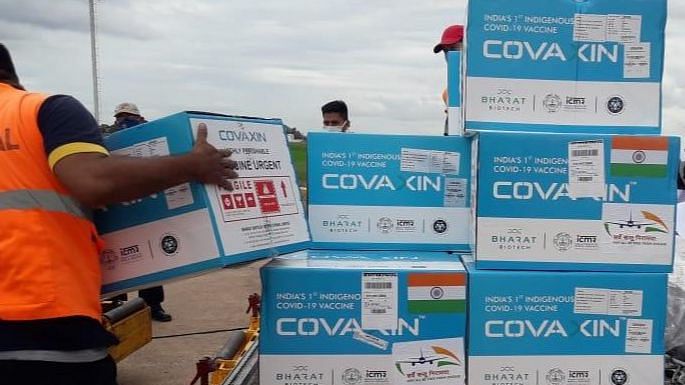Anecdotal journalism is often dicey because you can twist the story to suit your narrative. But here’s the thing: I tried to get the second vaccination dose for my father and some senior citizen friends on Friday, only to find that the closest hospital had run out of stock.
As April 9 progressed however it was clear that India did face a severe vaccination shortage even as we were in the midst of a massive Covid-19 wave. Initial reports of shortages concentrated around Maharashtra, and the Union Health Minister attacked the state government for mismanagement. That political wrangling was just a cover up for a perilous situation all over India.
For almost two weeks, states had begged the Centre for more vaccine stock as well as to loosen vaccine categories because Covid-19 figures had gone beyond last year’s figures. Their requests for door-to-door vaccinations were turned down. As ever, experts were ignored. Vaccines will be given to “those who need them, not those who want them”, was the arrogant official line, whatever that means. Even as the Prime Minister announced a badly named “tika utsav” or “vaccination festival” from April 11 to 14, there were no vaccines in several places and people were turned away.
Many blamed India’s “generosity” in sending millions of vaccines overseas. Narendra Modi and other BJP functionaries boasted about India’s kindness. This was a misrepresentation of the truth. India has contractual obligations with other governments to supply vaccines. Further, under the COVAX agreement, manufacturers have to supply vaccines to the world. India has already received legal notices for delaying vaccine shipments.
Many parts of India have either run out of stock or are on the verge of running out. Both manufacturers – Bharat Biotech and the Serum Institute of India (SII) – have requested government grants and assistance to manufacture more vaccines. They also warned that they were running short.
India sent Pfizer out of India to conduct a bridge trial even though it has been used extensively elsewhere. This caution is commendable, but it does not match with the conflicting safety protocols applied to Bharat Biotech. There are several other vaccines worldwide which have offered themselves to India, but the government is still sitting on its hands. Because our top Union ministers have been busy campaigning for Assembly elections most of 2021.
Once you strip away the gratuitous patting on the back, what is revealed is short-sightedness and gross mismanagement when it comes to both the pandemic and its prevention. Having convinced ourselves that we had defeated it and begun our vaccination of health workers in January, we ignored expert warnings about a second wave, confused people with the use of Covaxin and then very clearly did not plan ahead for what was to come.
A severe lockdown last year had its own repercussions and our government’s main response since then has been to ignore the problems – like returning migrant workers – or to play political games, like ignore protesting farmers and attempt to dislodge the Maharashtra government and stir communal disharmony in Bengal to win an election.
India has run several successful vaccination programmes in the past. The most notable is the ongoing polio immunisation programme, which began in 1994. It is not as if we are unaware of what a mass vaccination programme requires and how an available scheme can be tailored to suit changing requirements. It seems remarkable that given our enormous, trained bureaucracy, we were unable to roll out a more effective Covid-19 vaccination programme.
Rather than blame state governments, a responsible central government which controls vaccine distribution would have set aside political differences and treated India like one country. Not as a quilt of opposing versus friendly squares.
So far, we congratulated ourselves on the large numbers achieved. Given the size of our population, it is obvious that it is percentages and not numbers that are important. Right now, we are at about 6 per cent vaccinated with one dose and less than one per cent fully vaccinated.
At what point does a population demand action from its elected representatives? When do we see through the lies, the smoke and mirrors, the distractions and wake up to the travesty of governance played upon us? It’s almost too late as far as this pandemic goes.
































